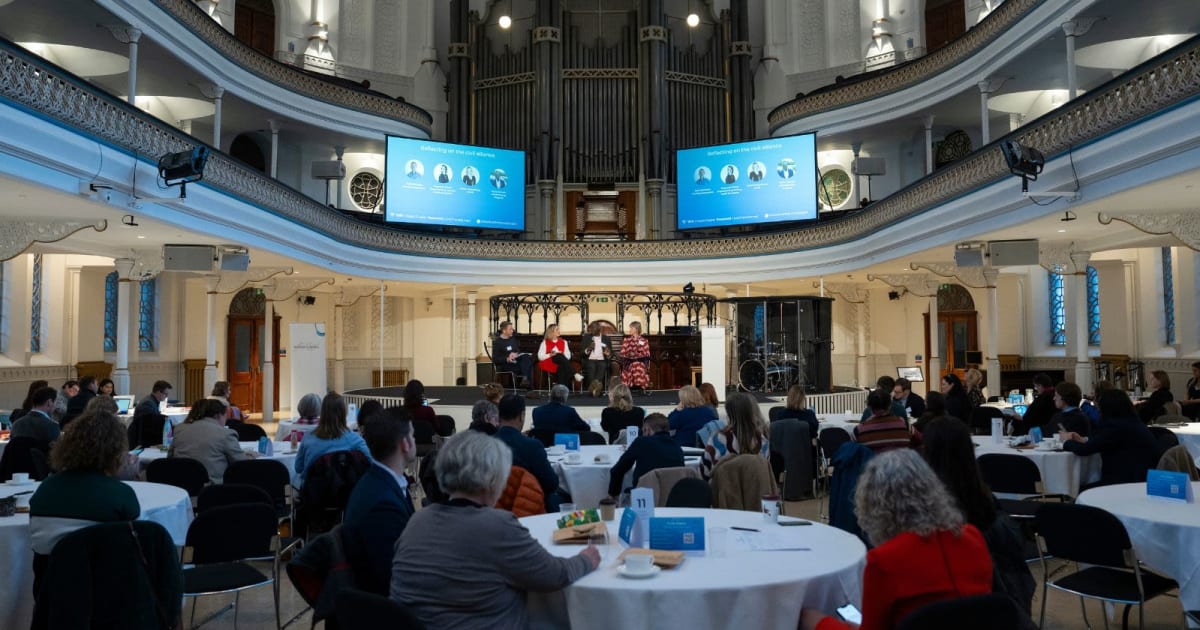By Tera Allas, Chair, Pro Bono Economics and Matt Whittaker, CEO, Pro Bono Economics
While 2024 was a year of change for the country, with the general election delivering a first Labour government in 14 years, it was also a period of transition for PBE.
After eight hugely productive years at the organisation’s helm, Lord Gus O’Donnell stepped down as Chair of the Board. He did so having overseen our busiest ever year and having helped set our future direction with the introduction of a new three-year strategy. Fittingly, his departure coincided with the publication of PBE’s first ever annual audit of low wellbeing in the UK – a report which we hope will become a mainstay of public policy debate and priority-setting.
The strategy, shaped by Gus, provides the most explicit statement yet of our desire to better understand and tackle low wellbeing. It sets out ambitious plans for achieving more impact – by expanding what PBE already does so successfully to new audiences and partners. It also pledges to achieve deeper impact – by growing the organisation’s expertise and its influence. And it emphasises our commitment to better working – by investing in the development of our people and processes.
Our low wellbeing audit clearly showed that the challenge we face is significant. Despite being one of the wealthiest countries globally, the UK is home to 3.2 million adults living below the ‘wellbeing poverty line’. That’s 5.7% of the adult population, a proportion that continues to far exceed the pre-pandemic low of 4.4% recorded in 2018.
We’re also facing a growing crisis in children’s wellbeing. One-in-four (25%) of the UK’s 15-year-olds reported low levels of wellbeing in 2022, a troubling and marked jump from the one-in-six (16%) figure recorded in 2015. It means we sit bottom of the European league table for the wellbeing of our young people, and second-lowest across the entire OECD.
Against this backdrop, our team has continued to work with charities, funders, firms and policymakers to make a difference.
Our long history of working with civil society – and the ground-breaking efforts of the Law Family Commission in particular – mean we continue to bring together policymakers and charities to forge new partnerships. We kick-started 2024 with our major Labour Party and Civil Society Summit. Headlined by Prime Minister-to-be Sir Keir Starmer, the conference brokered practical conversations between charity leaders and shadow ministers that continued beyond the election and directly informed the emerging Civil Society Covenant.
Over the course of the year we helped 169 charities, trained our 100th economist in wellbeing measurement and signed up our 1,000th economist volunteer. The fact that the charities we support rate us so highly and over 1,000 economists want to volunteer for us is testament to the valuable services we provide. Hand in hand with the economics profession, our rigorous approach and reputation for independence have allowed charities to use data better, tell more compelling stories, win funding, operate more effectively, and target their services better to those most in need.
Throughout 2024, our impactful economic and policy research has informed a range of policies, from party manifestoes to the Buckland Review of Autism. We have also raised awareness about the consequences of local authority cuts on the charity sector, the lack of literacy support for children and young people in deprived areas of the country, and much more. Since 2022 we’ve been campaigning alongside partners for policy change to increase charitable giving. This year we started to see real commitment from successive governments to making that happen.
While Gus has stepped down as chair, we’re delighted that he’s taken up a new role as honorary president, ensuring that PBE continues to benefit from his guidance and support. And we’re determined to build on his legacy by making even more of a difference in 2025.
Informed by our analysis of the key drivers of low wellbeing, we’ll launch new programmes of work on loneliness and on conditions in the private rental sector. These will complement our existing focus on low wellbeing, civil society, and children and young people’s mental health, aiming to drive change both systemically and at the individual charity or intervention level.
